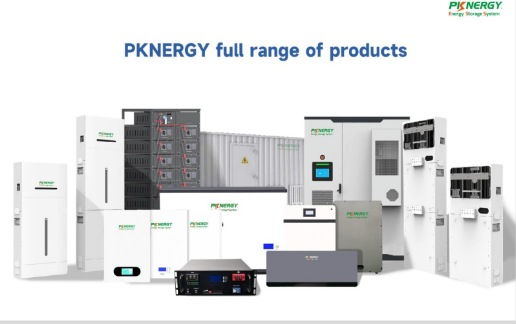Integrating a LiFePO4 server rack battery into data centers and server rooms has emerged as a revolutionary step in transforming technology infrastructure. This leap forward offers enhanced efficiency, reliability, and an eco-friendly alternative to traditional lead-acid batteries. The LiFePO4 server rack battery not only boasts a longer lifespan but also requires minimal maintenance, making it a cost-effective solution for businesses. Its superiority in thermal stability and safety further ensures that technology operations are not just uninterrupted but also protected against potential hazards. This document delves into the many advantages that a LiFePO4 server rack battery has to offer and how it is enhancing technology infrastructure worldwide.
Advantages of LiFePO4 Server Rack Battery
Longer Lifespan
The most notable advantage of using a LiFePO4 server rack battery is its longer lifespan compared to traditional lead-acid batteries. With a lifespan of up to 10 years, LiFePO4 batteries have almost three times the longevity of lead-acid batteries, which typically last for only 3-5 years. This extended lifespan translates into lower replacement and maintenance costs for businesses, making it a much more cost-effective solution in the long run.
Higher Efficiency
LiFePO4 server rack batteries also offer higher efficiency, allowing businesses to optimize their energy usage. These batteries have a low self-discharge rate and can maintain a consistent voltage output even at different discharge rates. This means that they can provide steady power supply without any dips or spikes, ensuring uninterrupted technology operations.
Minimal Maintenance
Another significant advantage of using LiFePO4 server rack batteries is that they require minimal maintenance. Unlike lead-acid batteries, they do not require regular water topping or equalizing charges. This not only saves businesses time and effort but also reduces the risk of potential human error in battery maintenance.
Environmental-Friendly
LiFePO4 server rack batteries are considered an environmentally-friendly alternative to traditional lead-acid batteries. Lead is a toxic metal that can pose health and environmental hazards if not disposed of properly. LiFePO4 batteries, on the other hand, are recyclable and do not contain any hazardous materials, making them a much safer option for businesses.
How LiFePO4 Server Rack Battery is Enhancing Technology Infrastructure
The integration of LiFePO4 server rack batteries into technology infrastructure is paving the way for more resilient and sustainable data centers. By enhancing the reliability of power supply and reducing the environmental impact of operations, these batteries are instrumental in supporting the continuous evolution of technology landscapes. Furthermore, their adoption contributes to the reduction of operational costs and promotes energy efficiency, thereby aligning with the global push towards greener technology solutions. This shift not only benefits businesses by improving their operational efficiency and sustainability but also plays a crucial role in minimizing the carbon footprint of technology operations worldwide. Moreover, the adoption of LiFePO4 server rack batteries often results in significant savings in electricity costs for businesses, especially with high pa price to compare electric.
Implementation Challenges and Considerations
While the shift towards LiFePO4 server rack batteries offers numerous benefits, it is not without its challenges. One of the primary considerations for organizations is the initial investment costs. Although these batteries provide significant cost savings in the long run, the upfront cost can be higher than traditional lead-acid batteries. Additionally, integration into existing technology infrastructure requires careful planning and, sometimes, modifications to accommodate the different charging and power management needs of LiFePO4 batteries. Organizations must also stay informed about the best practices for disposal and recycling to ensure their efforts remain environmentally responsible.
Future Trends in Server Rack Battery Solutions
The evolution of server rack battery technology is expected to continue accelerating, with LiFePO4 leading the charge towards more sustainable and efficient power solutions. Innovations in battery management systems (BMS) and the integration of intelligent monitoring software are enhancing the performance and reliability of these batteries even further. Additionally, the push for renewable energy sources in data centers is likely to increase the demand for batteries that can efficiently store and manage renewable energy. As businesses worldwide strive for greater sustainability and resilience, the role of advanced battery technologies like LiFePO4 in technology infrastructure will undoubtedly become more prominent.
Conclusion
The adoption of LiFePO4 server rack battery is transforming technology infrastructure by offering longer lifespan, higher efficiency, minimal maintenance, and a more eco-friendly alternative to traditional lead-acid batteries. As organizations worldwide increasingly prioritize sustainability and operational reliability, the demand for these advanced battery solutions is only expected to grow. With continuous innovation and development in server rack battery technology, businesses can look forward to even more efficient, reliable, and environmentally-friendly power solutions for their technology operations. So, the use of LiFePO4 server rack batteries is undoubtedly a wise investment for businesses looking to optimize their energy usage, reduce operational costs, and contribute towards a greener future.

